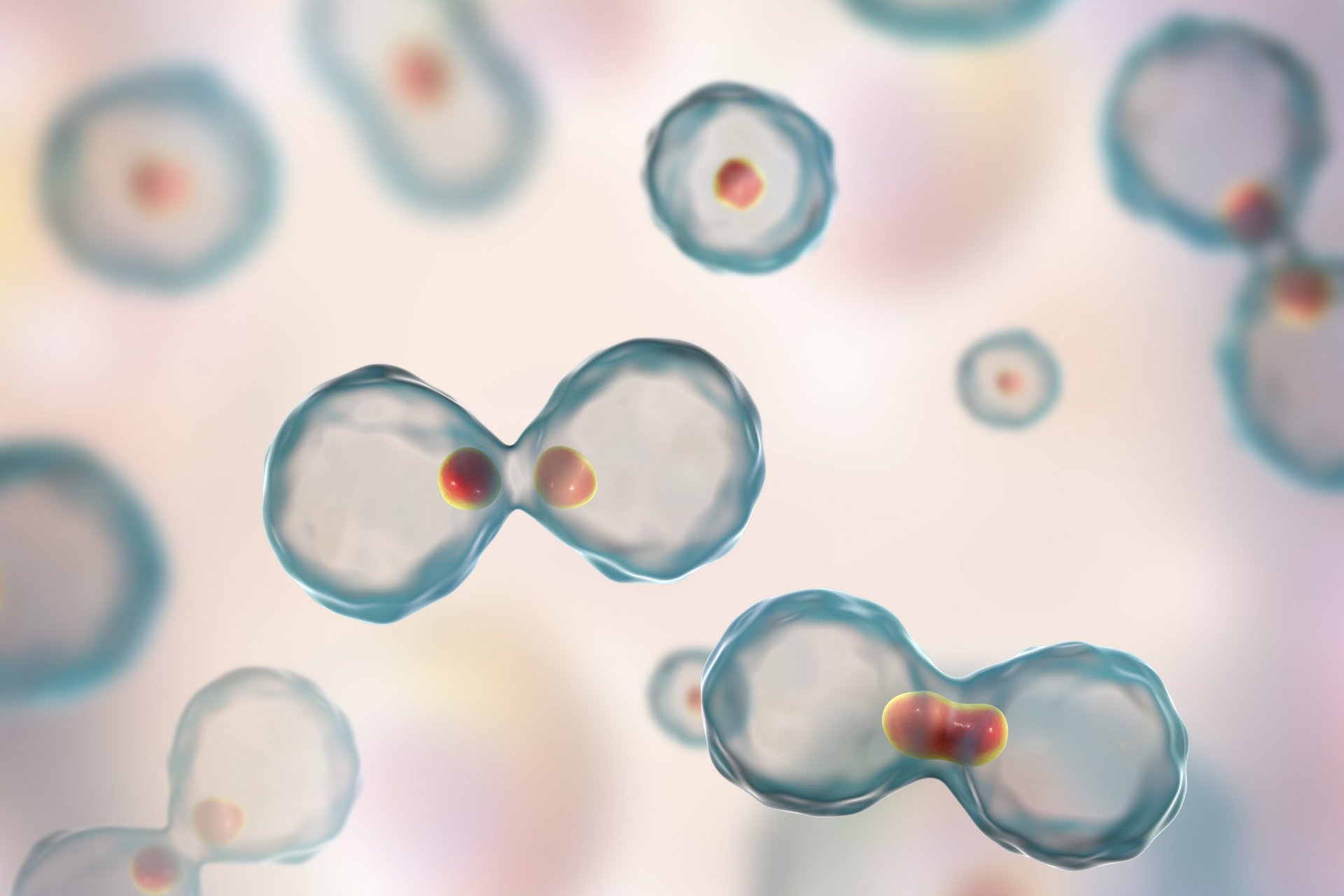The study of biological systems plays a key role in our understanding of nature and its impact on human health. This rapidly expanding field of research will shape future generations of scientists and professors. Its applications are vast: from ecology to virology, via the food industry, each advance opens up new perspectives. Some unexpected discoveries even revolutionize science. For example, the analysis of bacteriophages led to the development of CRISPR-Cas9, a revolutionary tool for genome modification, paving the way for major advances in genetics and medicine.
Biological systems
Understanding living organisms
Exploring the mysteries of life at the molecular level
Research topics
Bioinformatics is a field at the intersection of math, computer science, statistics, and biology. It has developed as a result of technological advances that provide access to growing quantities of data on the environment, genomes, and gene variations. Bioinformatics can analyze data derived from genetic information contained in DNA sequences and the proteins they encode. It is also used to analyze and model interactions between genes, proteins, cells, and organisms using data provided by high-throughput analytical technologies such as proteomics and transcriptomics.
The study of viruses that infect bacteria—bacteriophages—led to the birth of molecular biology and the identification of the molecular mechanisms that govern cells. Virus biology has been instrumental in developing gene therapies used to treat some genetic diseases. Scientists are also turning to viruses as a tool to fight bacterial infections. Their research has also contributed to our understanding of the origins of life and the emergence of biodiversity on the planet.
It is possible to characterize and understand the effects of natural selection on the organization and evolution of genomes by studying the structure and function of species’ genomes. This field of study has benefitted significantly from the development of increasingly powerful computers. Comparative genomics makes it possible to identify genes and their non-coding regulatory sequences. Recent work on DNA sequencing has shown that all living species share many common features and that genetic distance is less significant than gene combination and hierarchy in the diversity of living organisms.
Parasites live off their hosts, putting the host’s health and survival at risk. This triggers a reaction from the host, which tries to defend itself. Researchers study host-parasite interaction to understand the antagonistic relationships and the evolution of this arms race. In the end, the most resistant hosts are selected based on their ability to overcome parasites. Understanding these processes is significant for evolutionary ecology, agriculture, and species conservation.
The study of proteins that result from gene transcription is crucial for understanding organism function and dysfunction at the molecular level. Detailed knowledge of proteins paves the way for the discovery of new therapeutic agents, biodegradable materials, bioreactors for detoxification, and greener industrial biocatalysts.
Systems biology involves integrating various layers of information to understand how a biological system works. To do so, scientists study the relationships and interactions between different parts of a system like cells, genes, proteins in order to determine how the system works as a whole. High-throughput screening makes it possible to study an organism’s genes and proteins by quantifying changes to its genome, transcriptome, proteome, and metabolome in the wake of any type of disturbance.
The faces of biological systems research
Discover the passionate Faculty members who actively contribute to this area of excellence.
Research units
Canada Research Chairs
- Canada Research Chair in genomics and metabolomics of the symbiosis between tropical plants and microbes Chairholder: Juan Carlos Villarreal Aguilar, associate professor, Department of Biology
- Chaire de recherche du Canada en biologie synthétique et des systèmes cellulaires Chairholder: Christian Landry, full professor, Department of Biochemistry, Microbiology, and Bio-informatics
- Canada Research Chair in Bacteriophages Chairholder: Sylvain Moineau, full professor, Department of Biochemistry, Microbiology, and Bio-informatics
Research centres, institutes, and groups
- Cancer Research Centre (CRC) Director: Luc Beaulieu, full professor, Department of Physics, Engineering Physics and Optics, vice-dean
- Institute for Systems and Integrative Biology (IBIS) Director: Steve Charette, full professor, Department of Biochemistry, Microbiology, and Bio-informatics
- Quebec Network for Research on Protein Function, Engineering, and Applications (PROTEO) Director: Ahmad Saleh, associate professor, Department of Biochemistry, Microbiology, and Bio-informatics
At first I wasn’t sure I wanted to pursue graduate studies even though I loved my microbiology courses. But when I started my project, I got hooked, and I would have been jealous if someone else had taken it over.
Marie-Laurence Lemay, PhD graduate in microbology supervised by professor Sylvain Moineau. Her research investigated the genes of the virulent phage p2 using a genome editing tool based on CRISPR-Cas9 technology.
Graduate studies
Make the leap to graduate studies
Learn more about the admission process for graduate studies
Explore our fields of study
Resources for researchers and student researchers
The Vice Dean of Research
The mission of the faculty’s Office of the Vice Dean of Research is to familiarize faculty members with research funding program requirements. Its research development advisors can assist researchers in preparing funding applications and drafting research contracts. They can also provide information and guidance on technology transfer opportunities.
